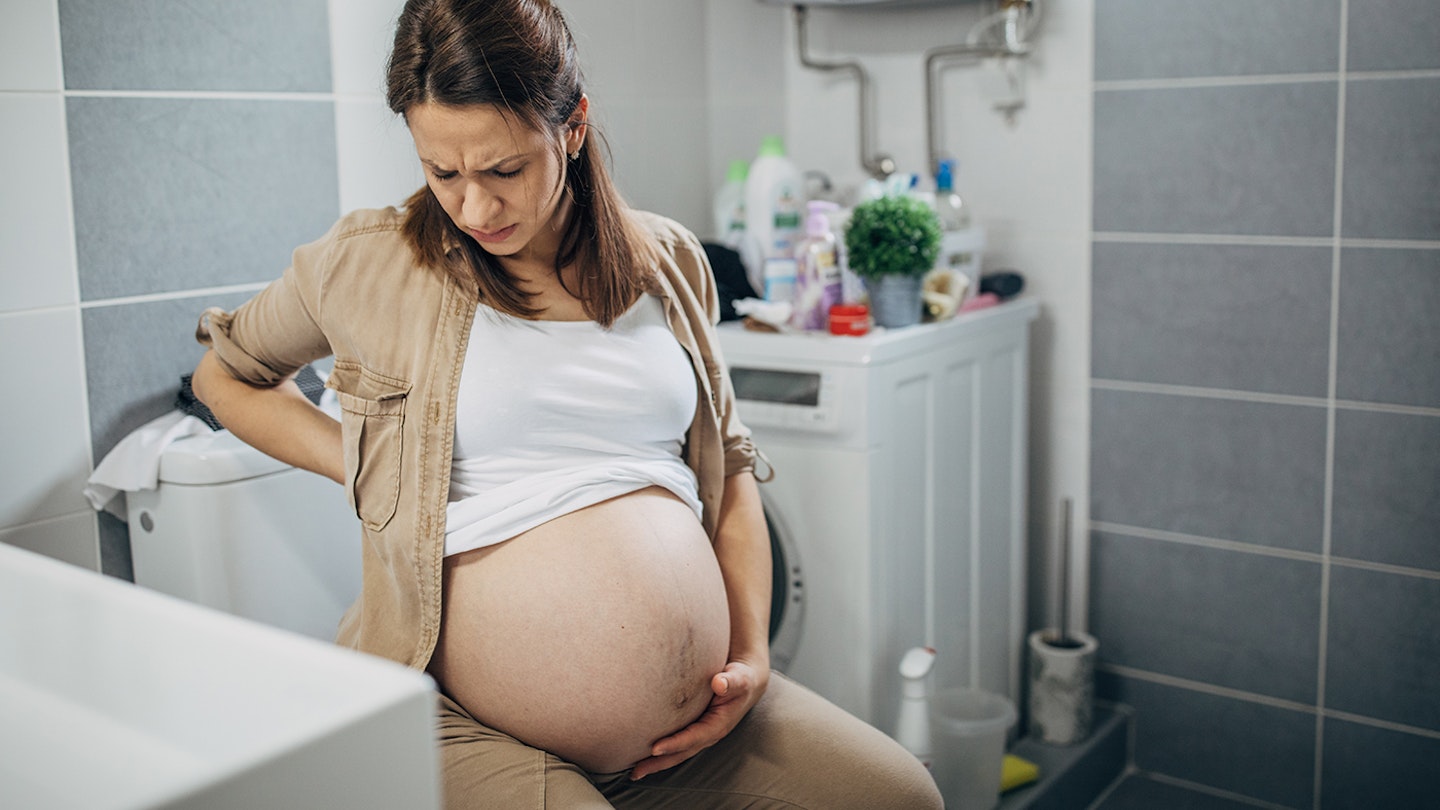It's quite common to experience piles during pregnancy, it's just another common side effect that comes with growing a little human. Piles, also known as hemorrhoids are essentially swellings caused by enlarged blood vessels that can develop inside or around your anus, and anyone can get them, they are not just limited to pregnancy.
It is common for women who are pregnant to suffer from piles, estimates suggest that between 25% and 35% of pregnant women experience it. After pregnancy, the strain of vaginal delivery can also make women more prone to developing piles.
To get some expert advice we spoke to Dr. Susanna Unsworth, a women’s health and menopause specialist with over 15 years of experience supporting women. She explains "Piles in pregnancy are usually not a cause for concern and often improve after childbirth. However, they can cause unpleasant symptoms. Although not dangerous, these symptoms can be uncomfortable and interfere with daily life." She also offers guidance on how to manage and treat piles in pregnancy and advises when you should see a doctor.
Symptoms of piles in pregnancy
If you have piles, according to the NHS these are the symptoms you may experience:
• Itching or pain around your anus (may also experience aching, soreness or swelling)
• Pain when going for a poo
• Mucus discharge after you’ve been for a poo
• Swelling or a lump near the anus, which may need to be pushed back in after passing a stool
• Bleeding after passing a stool – the blood is usually bright red
Why do women get piles in pregnancy?
"Haemorrhoids, or piles, are swollen and inflamed veins around the anus or lower part of the bowel," says Dr Susanna. "They are very common in pregnancy and are mainly caused by:
• Increased pressure from the growing uterus, which puts strain on the veins in the pelvis.
• Pregnancy hormones (especially progesterone), which relax the walls of blood vessels and make them more likely to swell.
• Increased blood volume in pregnancy, which can cause veins to enlarge," explains Dr Susanna.
• Constipation during pregnancy often caused by hormones that slow down digestion, iron supplements, as well as increased pressure n the rectum and anus from the growing uterus. Women who suffer from IBS before pregnancy may also find that their IBS is impacted by pregnancy, including bouts of constipation.
How to get rid of piles in pregnancy
While you can’t instantly get rid of piles, there are lots of ways to ease the discomfort, including sticking to a healthy diet and lifestyle plan. Dr Susanna suggests focusing on your diet, hydration and exercise "Eat a high-fibre diet including plenty of fruits, vegetables, legumes, and whole grains, drink plenty of water to keep stools soft. Regular gentle activity like walking or swimming can help keep the bowels moving." Don’t worry about harming your baby while exercising, there are plenty of safe ways you can exercise safely while you’re pregnant. She also suggests taking mild laxatives if needed "such as lactulose or macrogols are considered safe in pregnancy, but check with your doctor first."
If you need to take the pressure off your piles, try not to stand for long periods and also avoid straining when on the toilet. Dr Susanna also suggests home remedies which may help alleviate some of the discomfort. "Try warm baths (10–15 minutes) to soothe the area or apply cold compresses to reduce swelling. Use donut-shaped cushions when sitting to take pressure off the area and maintain good hygiene; use moist toilet paper or a damp cloth and gently pat dry after using the toilet."
Can I avoid getting piles in pregnancy?
Your best bet is to try and avoid becoming constipated during your pregnancy in order to avoid piles. The best ways you can do this is by following Dr Susanna's advice above - eating foods high in fibre, regularly exercising, not standing for too long and applying a cold compress against your piles.
When should a doctor be consulted?
"If the pain or bleeding is significant or increasing or if symptoms are interfering with daily activities and you need to use supportive aids like cushions frequently, it's wroth seeing your doctor," Dr Susanna suggests. She continues "Some creams containing hydrocortisone or local anaesthetics (like lidocaine) can be safe in pregnancy, but always check with your healthcare provider before use to rule out other causes and ensure the best treatment."
Your piles should resolve themselves within a couple of weeks of you giving birth but see your GP if they don’t.
About the expert
Dr. Susanna Unsworth is a women’s health and menopause specialist with over 15 years of experience supporting women. She trained at the University of Cambridge and holds multiple postgraduate qualifications, including an Advanced Certificate in Menopause Care. Dr. Unsworth works as a Specialist Breast Physician at Addenbrooke’s Hospital and as a Community Gynaecology GP in Essex. She is the founder of Cambridge Women’s Health and also the creator of Meno8, a targeted supplement designed to support women through menopause.
About the author
Bryony Firth-Bernard graduated from the University of Gloucestershire with a first in Journalism and went on to work as a reporter at Heart Radio West before becoming the lifestyle intern across Good Housekeeping, Prima and Red magazine.
